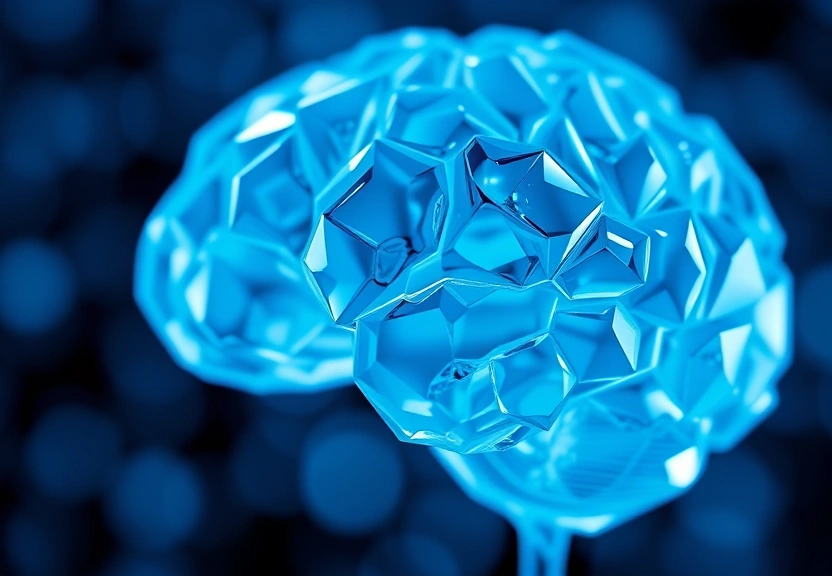Lithium: The Promising Key to Combat Alzheimer’s, Reveals Harvard Study
Recent research from Harvard University has unveiled a groundbreaking discovery linking lithium, a metal with long-standing applications in mental health treatment, to potential Alzheimer’s disease interventions. This exciting study highlights the correlation between low lithium levels in the brains of individuals suffering from dementia and the restoration of memory functions in animal models. As the global population ages and the prevalence of Alzheimer’s disease rises, this research raises hope for new therapeutic avenues in combating memory loss and cognitive decline.

Alzheimer’s disease, a progressive neurodegenerative disorder, affects millions of people worldwide, leading to severe memory loss, cognitive decline, and a diminished quality of life. Traditional treatment options have largely focused on symptom management rather than addressing the underlying causes of the disease. However, the findings from Harvard suggest that lithium could play a vital role in reversing the effects of dementia and improving brain health. In this article, we will explore the implications of these findings, delve deeper into the role of lithium in brain function, and discuss the future of Alzheimer’s disease treatment.
The Link Between Lithium and Alzheimer’s Disease
The Harvard study emphasizes that individuals diagnosed with Alzheimer’s disease often exhibit significantly reduced levels of lithium in their brains. This observation has prompted researchers to investigate whether lithium supplementation could reverse the cognitive impairments associated with dementia. The study utilized a range of experimental models, including genetically modified mice that exhibited Alzheimer’s-like symptoms.
How Lithium Affects Brain Health
Lithium is a naturally occurring element best known for its use in treating bipolar disorder. It is believed to exert neuroprotective effects by promoting neuronal health, enhancing synaptic plasticity, and reducing neuroinflammation. In the context of Alzheimer’s disease, these properties could counteract the pathological processes leading to memory loss.
Study Findings: Memory Recovery in Mice
In the Harvard study, researchers administered lithium supplements to a group of mice genetically engineered to develop Alzheimer’s disease. The results were remarkable: the treated mice exhibited significant improvements in memory and cognitive function compared to their untreated counterparts. Notably, the lithium-treated mice showed enhanced performance in maze tests, which assess memory retention and learning ability.
Mechanisms of Action
- Neuroprotection: Lithium appears to shield neurons from degeneration, a hallmark of Alzheimer’s pathology.
- Reduction of Amyloid Plaques: The study indicated that lithium could decrease the accumulation of amyloid-beta plaques, which are toxic to brain cells.
- Enhanced Neurogenesis: Lithium may stimulate the formation of new neurons, a process crucial for memory and learning.
Implications for Alzheimer’s Treatment
The implications of the Harvard study are profound, offering a potential new approach to treating Alzheimer’s disease. As the research community seeks effective therapies, lithium could emerge as a viable option, particularly for early-stage patients. Unlike current treatments that primarily aim to alleviate symptoms, lithium may address some of the fundamental mechanisms underlying the disease.
Potential Challenges
Despite the promising results, several challenges must be addressed before lithium can be widely adopted as a treatment for Alzheimer’s disease. These include:
- Dosage Optimization: Determining the correct dosage of lithium for efficacy without adverse effects is crucial.
- Long-Term Safety: Long-term lithium use can have side effects, including kidney damage and thyroid issues, necessitating careful monitoring.
- Human Trials Required: Further research is needed to evaluate the effects of lithium in human subjects, as results in animal models do not always translate to humans.
Current Treatments for Alzheimer’s Disease
Currently, the treatment landscape for Alzheimer’s disease includes a variety of medications aimed at managing symptoms rather than curing the disease. Commonly prescribed drugs include acetylcholinesterase inhibitors and memantine, which help improve memory and cognitive function. However, these treatments have limitations and do not prevent disease progression.
The Need for Innovative Approaches
As the incidence of Alzheimer’s disease continues to rise, the need for innovative therapeutic approaches becomes increasingly urgent. The discovery of lithium’s potential role in reversing memory loss represents a significant step forward in the search for effective Alzheimer’s treatments. By targeting the underlying mechanisms of the disease, lithium may help shift the focus from mere symptom management to disease modification.
Frequently Asked Questions (FAQs)
1. What is lithium, and how is it used in medicine?
Lithium is a naturally occurring element primarily used to treat bipolar disorder. It helps stabilize mood and has potential neuroprotective effects, making it a subject of interest in neurodegenerative conditions like Alzheimer’s disease.
2. How does lithium affect Alzheimer’s disease?
Recent studies, including the one from Harvard, suggest that lithium may improve memory and cognitive functions in Alzheimer’s patients by promoting neuron health, reducing amyloid plaques, and enhancing neurogenesis.
3. Are there any side effects associated with lithium treatment?
Yes, long-term lithium use can lead to side effects, including kidney damage, thyroid issues, and potential cognitive impairment. Careful monitoring is necessary to mitigate these risks.
4. What are the current treatments for Alzheimer’s disease?
Current treatments primarily include acetylcholinesterase inhibitors and memantine, which aim to manage symptoms rather than cure the disease. New approaches, like those involving lithium, are being researched for their potential to modify disease progression.
5. What are the next steps for lithium research in Alzheimer’s treatment?
Future research will focus on human clinical trials to evaluate the safety and efficacy of lithium in treating Alzheimer’s disease, alongside determining optimal dosing strategies and long-term effects.
Conclusion
The Harvard study on lithium’s potential role in combating Alzheimer’s disease marks a pivotal moment in the search for effective treatments for dementia. By elucidating the connection between lithium levels and cognitive function, researchers are opening new avenues for therapeutic development. While challenges remain in translating these findings to clinical practice, the promise of lithium as a neuroprotective agent offers hope for millions affected by Alzheimer’s disease. As research progresses, there is optimism that lithium could become a cornerstone in the treatment of neurodegenerative disorders, fundamentally changing the landscape of Alzheimer’s care.
📰 Original Source
Este artigo foi baseado em informações de: https://super.abril.com.br/saude/litio-pode-ser-peca-chave-no-tratamento-do-alzheimer-sugere-estudo-de-harvard/